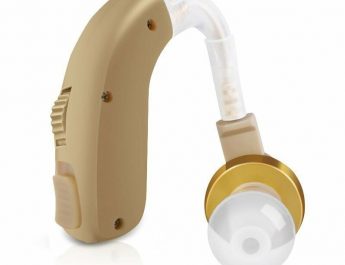The human body is an amazing thing. It has many intricate systems, all of which work together to keep us healthy and functioning optimally. However, when one or more of these systems are out of balance, it can have serious consequences. Hormones play a crucial role in the body’s functionality, and any disruptions can lead to a variety of health issues. That’s why it’s so important to understand what causes hormonal imbalances and how to identify potential problems. So click over here now for advice on ways to identify potential hormonal imbalances and the proper medical treatments available. 
What Causes Hormonal Imbalance?
Hormonal imbalance occurs when there’s too much or too little of certain hormones circulating in the bloodstream. This is usually due to changes in hormone production by the endocrine glands which control every bodily function from metabolism and weight management to sexual development and reproduction. In some cases, lifestyle factors such as stress can also cause a disruption in hormone levels leading to an imbalance.
How To Diagnose A Hormonal Imbalance?
It’s not always easy to diagnose a hormonal imbalance as symptoms vary from person to person and can be caused by other underlying conditions such as thyroid disease or diabetes. If you suspect that you may be suffering from a hormonal imbalance then it’s best to consult with your doctor who will be able to perform tests such as blood tests or urine tests that measure levels of hormones in order to make an accurate diagnosis.
Symptoms Of Hormonal Imbalance
There are several common signs and symptoms associated with hormonal imbalances including fatigue, headaches, anxiety/depression, irregular periods (in women), hair loss/thinning hair (in men), acne breakouts, difficulty sleeping at night or insomnia, low libido/sex drive and sudden weight gain/loss with no change in diet or exercise habits.
Identifying The Root Cause Of An Imbalance
Once your doctor has made a diagnosis they will attempt to identify the root cause of the problem; this could include anything from stress causing fluctuations in cortisol levels (the stress hormone) or deficiencies in vitamins/minerals responsible for maintaining healthy hormone production. They may even suggest further testing such as genetic testing if necessary before beginning treatment for your condition.
Treatment options for hormone imbalances
Depending on the severity of your condition, there are several different types of treatment options available for managing hormone imbalances, ranging from lifestyle changes such as getting regular exercise and reducing stress levels to dietary changes such as increasing your intake of omega-3 fatty acids, to taking supplements if needed, to surgery such as a hysterectomy for extreme cases where other methods aren’t effective enough. Your doctor will discuss each option with you before deciding on the best course of action based on your individual circumstances.
Medications and supplements to treat hormone imbalances
In some cases, medicines such as birth control pills or synthetic hormones may be prescribed to treat certain types of hormone imbalance, while supplements containing natural herbs may also help improve hormone balance naturally without causing side effects. Supplements usually contain compounds called phytoestrogens, which mimic estrogen produced by the body and help restore balance. In addition, probiotics are often recommended as they support gut health, which helps regulate hormones in our bodies, improving overall balance.
Benefits of addressing a hormonal imbalance promptly
Although it’s not always easy to address a hormonal imbalance promptly, there are many benefits to doing so, including reducing risk factors associated with conditions such as diabetes, improving fertility, increasing energy levels, balancing mood swings, reducing inflammation levels throughout the body and therefore improving overall health, as well as preventing premature aging by maintaining collagen production, among many other benefits, provided we strictly adhere to the medication protocol that has been appropriately prescribed in consultation with the healthcare professional(s) involved.
Conclusion:
Identifying and managing hormonal issues is essential for health and well-being.
In conclusion, identifying potential problems related to hormones is essential for ensuring optimal well-being, as these chemicals affect almost every aspect of life, from physical performance capacity, and mental clarity to emotional stability, etc. As soon as you notice something seems amiss regarding your general feeling unlike usual, immediately seek medical care/attention by making an appointment with the appropriate healthcare practitioner either GP/family doctor respectively because more times than not chances are pretty good something related must have already started going wrong internally at least regarding endocrine system matters even though outwardly still might appear normal yet should never wait around too long waiting to see what eventually happens especially if dealing with underlying chronic illness history, a particularly relevant scenario so just remember ultimately finding right solutions takes time but start earlier better off everyone likely to be future wise!




